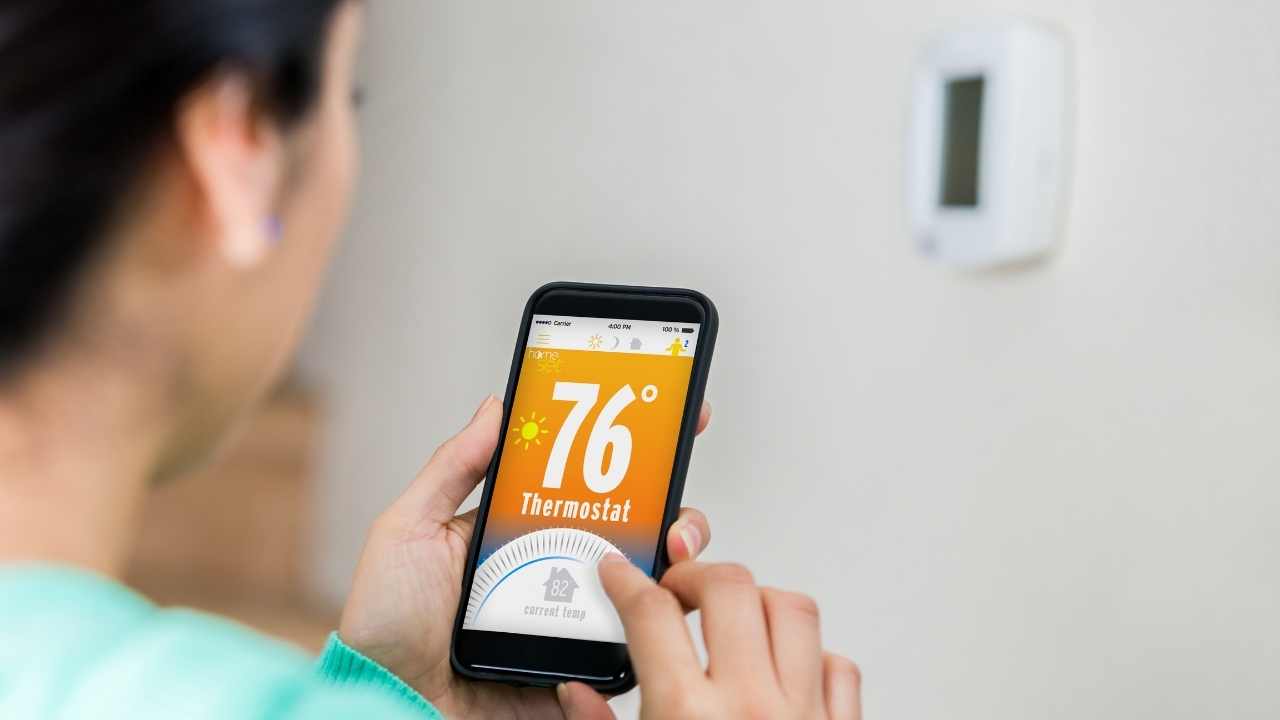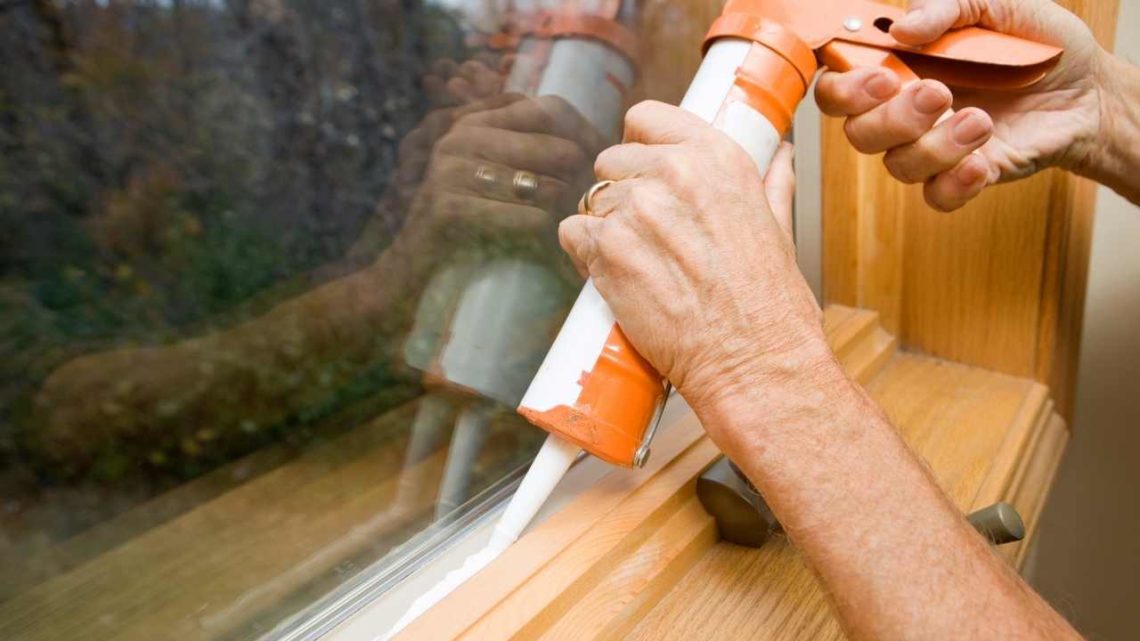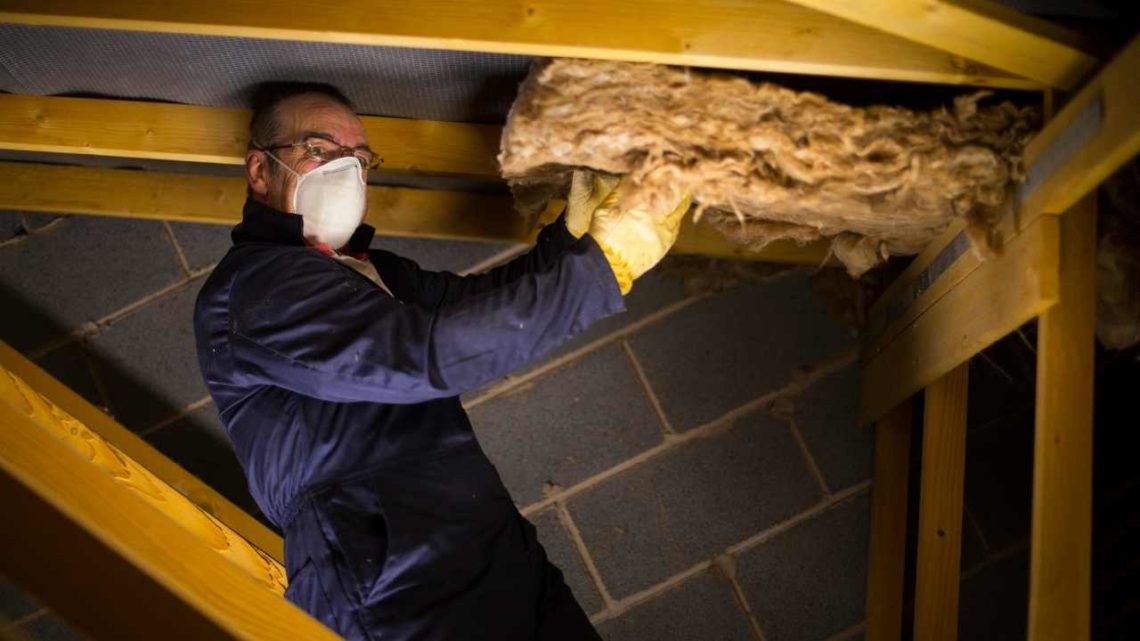Lori Ballen, the owner of this website, benefits from purchases made through her affiliate links.
As an Amazon Associate, I earn from qualifying purchases. Some links on this site are affiliate links. Portions of this content are generated by AI.
Making your home more energy-efficient can seem like a daunting task, but it doesn’t have to be! You can do many things to make your home more energy-efficient without spending a lot of money. Many of these tips can be done for free. Check out the list below for 19 easy ways to save on your energy bill and help the environment!
1. Install a smart thermostat

There are several ways to make your home more energy-efficient, but one of the simplest and most effective is to install a smart thermostat. Setting the thermostat to a lower temperature when you’re away from home or asleep can save money on your energy bill while also reducing your carbon footprint.
In addition, programmable thermostats can be programmed to raise the temperature gradually before you wake up or come home, so you’re not wasting energy by cooling down an empty house. And if you’re not ready to commit to a programmable thermostat, simply turning down the heat when you’re not home can also make a big difference.
So take a few easy steps to make your home more energy-efficient and help the environment simultaneously.
2. Seal windows and doors with caulking

The average home can leak a lot of energy through windows and doors. In the winter, cold air seeps in, and hot air sneaks in in the summer. This costs money because your furnace or air conditioner has to work harder to maintain the temperature you desire.
You can avoid this scenario by sealing windows and doors with caulking. This doesn’t have to be a complicated or messy job. You can find a caulking tube at your local hardware store, and it only takes a few minutes to apply.
Once you’ve sealed up all the cracks, you’ll be surprised at how much more comfortable your home feels and how much money you save on your energy bill.
3. Add insulation to your attic

Attic insulation is one of the best ways to improve your home’s energy efficiency. By trapping heat in the winter and keeping cool air in the summer, attic insulation can help you keep your home comfortable year-round. It can also save you money on your energy bills. However, attic insulation is not just about saving money.
It can also help to protect your home from damage. In the winter, attic insulation helps to prevent ice dams from forming on your roof. In the summer, it helps to keep your attic cool, preventing heat damage to your roof and eaves. In addition, attic insulation can also help to reduce noise pollution. If you live in a noisy area, adding insulation to your attic can help to muffle the sound of traffic and other outdoor noise sources.
As a result, attic insulation is not just good for your wallet – it’s good for your home, your health, and the environment.
4. Hang blackout curtains
At home, we sometimes struggle to keep our energy costs under control. Between the cost of heating and cooling the house, running our appliances, and powering all of our electronics, it can be hard to stay within a reasonable budget. One simple solution to this problem is to hang blackout curtains in your home.
These curtains are specially designed to block out sunlight and reduce heat transfer through windows, which helps you to save on your energy bills every month.
Additionally, by limiting heat transfer, blackout curtains also help to stop temperatures from fluctuating too drastically throughout the day or night. So if you’re looking for a quick and easy way to make your home more energy-efficient, consider installing blackout curtains today.
Your wallet will thank you for it!
5. Replace incandescent light bulbs with LED bulbs
When it comes to saving energy, lighting is one of the easiest places to start. Traditional incandescent light bulbs are extremely inefficient, wasting a large amount of energy as heat rather than light. By swapping these old bulbs for more efficient LED options, homeowners can significantly reduce their electricity usage and carbon footprint.
Not only do LED bulbs produce significantly less heat than standard light bulbs, but they also shine for much longer without needing to be replaced. By choosing LEDs over incandescents, you can make your home more energy-efficient and help to save the environment in the process.
So why wait? Swap those incandescents for LEDs today and see the difference that simple changes can make!
Use energy-efficient appliances
Conserve energy by using energy-efficient appliances. The initial cost may be high, but in the long run, you will save money and conserve natural resources.
You’ll also cut down on pollution and help to make your home more comfortable. With new energy-efficient models available, there’s no reason not to upgrade your old, inefficient appliances.
Look for the ENERGY STAR label when shopping for new appliances. This designation means that the machine meets or exceeds energy efficiency standards set by the U.S. Environmental Protection Agency.
ENERGY STAR appliances use 10-50% less energy than standard models and can save you hundreds of dollars each year on your energy bills.
7. Unplug electronics when not in use
When it comes to energy efficiency, the little things often make the most significant difference.
For example, many homeowners don’t realize that simply unplugging electronics when they are not being used can have a big impact on their overall energy consumption.
Not only does unplugging devices save money by reducing your overall electricity usage, but it also cuts down on dangerous levels of electromagnetic radiation.
At first, this might seem like a big hassle, since most of us rely on our devices for entertainment or work purposes. But with a bit of effort and some simple planning, you can easily create an unplugged routine that works for you and your family.
You might start by reading an audiobook or e-book every night before bed instead of watching TV or scrolling through your social media feed. Or maybe encourage everyone in your household to power off their smartphones and other high-energy devices during meals.
Anything that reduces your dependence on electronics will help to make your home more energy-efficient, so remember to unplug when you can!
8. Turn off lights when you leave a room
When you leave a room, be sure to turn off the light. It’s a simple act that can save you money and help protect the environment. Every time you switch off a light, you’re saving energy. And when you save energy, you’re also helping to prevent climate change.
Turning off lights is just one of the many things you can do to make your home more energy-efficient.
By taking these steps, you can save money on your energy bills and help make a difference in the fight against climate change. So don’t forget: when you leave a room, make sure to turn off the light.
9. Wash your clothes in cold water
Although most people think that washing their clothes in cold water will not get them as clean as hot water, this is not the case. In fact, many laundry detergents are designed to work just as well in cold water as they do in hot water. Additionally, washing your clothes in cold water can save significant energy.
Heating water uses a lot of energy, so by washing your clothes in cold water, you can reduce your energy usage and make your home more efficient. In addition to being more energy-efficient, washing your clothes in cold water can also extend their lifespan. Hot water can cause fabrics to shrink and fade, but cold water is much gentler on clothing.
As a result, you can end up saving money in the long run by washing your clothes in cold water.
10. Line dry your clothes
When it comes to making your home energy efficient, one of the best things you can do is prioritize sustainability. One easy way to make your home more sustainable is to line dry your clothes. By air-drying your clothes instead of using a dryer, you can save significant energy.
Not only does this help reduce your carbon footprint, but it also saves you money on your electric bills by reducing how much power you need from your local utility company.
Additionally, some experts believe that line dried clothes may last longer due to reduced exposure to heat, further helping to preserve resources. In short, opting to line dry your clothes is a great way to make your home more energy-efficient and eco-friendly!
11. Only run the dishwasher when it is full
At first glance, it may not seem like running the dishwasher uses very much energy. After all, it’s just a machine that cleans your dishes, right? Wrong. The average dishwasher uses about 20 gallons of water per cycle. That might not seem like much, but it adds up quickly—especially if you’re running the dishwasher multiple times a day.
Not to mention, the hot water that is used to clean your dishes also uses energy to heat up. So, how can you make your home more energy efficient? One way is only to run the dishwasher when it is full.
This will help to reduce the amount of water and energy that is used on a daily basis. In addition, try to air-dry your dishes whenever possible. This simple change can make a big difference in the amount of energy that your home uses each month.
12. Use a power strip for electronics
When it comes to making your home more energy-efficient, having the right tools is key. Devices like power strips are essential for prolonging the life of your electronics and saving money on energy costs. Using a power strip lets you easily switch off all of your devices at once with just a click, reducing the amount of electricity they use and preventing unnecessary waste.
In addition, these strips are great for protecting your devices against surges and spikes in voltage—another important factor in energy efficiency.
Whether you’re looking to save some money or reduce your environmental impact, investing in a power strip is an easy and effective way to make your home smarter and more efficient.
13. Educate your family and friends about conserving energy
The average American family spends about $122.52 per month on energy bills, but there are plenty of ways to save money and conserve energy in the home. By making a few simple changes, you can reduce your energy consumption and lower your bills. One of the easiest ways to conserve energy is to unplug electronics that are not in use.
Many devices, such as TVs, chargers, and coffee makers, continue to consume electricity even when they are turned off. So, by unplugging these devices when you’re not using them, you can save money and reduce your carbon footprint. You can also save energy by turning off lights when you leave a room and by using energy-efficient light bulbs. In addition, during the summer months, you can conserve energy by setting your thermostat a few degrees higher than usual.
By making small changes like these, you can have a big impact on your energy consumption—and your wallet. So, be sure to educate your family and friends about conserving energy; it’s good for both the environment and your bottom line.
14. Turn down your water heater
Temperature is a major factor in efficiency and one of the most basic ways to conserve energy in your home is to lower your water heater temperature. By turning down your water heater, you can save money on your utility bills and also reduce your carbon footprint.
Most people have their water heaters set too high, often because they think that hot water is somehow more sanitary. However, water heated to 140 degrees Fahrenheit is just as effective at killing bacteria as water heated to 160 degrees. So there’s no need to waste energy by overheating your water. Just a simple turn of the dial can make a big difference.
Not only will you save money, but you’ll also help to protect the environment. So next time you’re looking for ways to be more energy-efficient, don’t forget the simple act of turning down your water heater. It could make all the difference.
15. Plant trees to help cool your home in the summer
Keeping cool can be a real challenge when the hot summer months roll around. If you’re looking for ways to make your home more energy-efficient, one solution is to plant trees near the house. Planting large trees on the perimeter of your property can help to shade your home and keep it cool in the summer.
This not only makes your home more comfortable, but it also helps to reduce your energy usage. Fewer windows get direct sunlight, so you’ll spend less time running air conditioners and fans in order to stay cool. In addition, by shading your roof, the tree canopy acts as an insulator that keeps heat from entering or escaping through the roof.
So if you’re looking for a simple yet effective way to stay cool and conserve energy this summer, planting some trees should be at the top of your list!
16. Use fans instead of air conditioning when possible
In the summer, the air conditioner is a blessing. It can be a lifesaver on those hot, sticky days when the mercury rises and there is no relief in sight. However, air conditioners are also one of the biggest energy users in the home, so it is important to use them wisely. When possible, open windows and use fans to circulate the air.
Fans use much less energy than air conditioners and can often provide enough of a cooling breeze to make the room comfortable. In addition, using fans instead of air conditioners can help to improve indoor air quality by circulating fresh air throughout the home.
As a result, using fans instead of air conditioners is a smart way to save energy and keep your home cool and comfortable all summer long.
17. Set your refrigerator temperature between 38 and 42 degrees F
Maintaining the appropriate temperature in your refrigerator is important not only for keeping perishable foods fresh and appetizing but also for increasing energy efficiency in your home.
Setting your fridge to between 38 and 42 degrees Fahrenheit can help reduce total energy usage by minimizing the amount of time that the appliance must be on. This maintains optimal cooling and defrosting, while also helping to reduce unnecessary waste.
Whether you keep fresh veggies, tasty leftovers, or healthy snacks in your fridge, keeping it at an appropriate temperature will help you save money and improve your home’s overall energy use. So why wait? Set that dial to ensure you’re getting the most out of your refrigerator!
18. Upgrade to Energy Star certified windows and doors
When it comes to maintaining a comfortable and efficient home, it is essential to consider all aspects of the environment. From your HVAC system to the insulation in your walls and ceiling, there are countless factors that play a role in determining how efficiently your home runs. One area that many homeowners overlook is their windows and doors. These can be major sources of energy loss if they are not properly sealed and protected from the elements.
Upgrading to Energy Star certified windows and doors is one of the most effective ways to make your home more energy-efficient. Incorporating these high-quality products into your home’s design can reduce air leaks, reduce drafts, and prevent heat loss through gaps around doors and window frames.
Furthermore, these materials come equipped with advanced glazing technologies that block out harmful UV rays from the sun while still allowing natural light to enter your home. And by using intelligent design features like double or even triple panes on windows, you can further insulate your living space against the elements.
So if you are ready to upgrade your home and make it as environmentally friendly as possible, consider investing in Energy Star certified windows and doors today. Not only will they help you save money on utility costs in the long run, but they will also make your home more comfortable, healthy, and beautiful.
19. Start Composting
Composting is a great way to reduce waste and improve the environment, but did you know that it can also help save energy in your home? By composting all of your food scraps and plant matter rather than throwing them away, you can drastically cut down on the amount of trash in landfills.
One of the biggest contributors to greenhouse gas emissions is the decomposition of organic materials in landfills. By composting, you can help prevent this process and reduce your overall energy use at the same time.
Additionally, composting allows you to recycle food waste and turn it into rich soil for your garden or lawn. Not only does this boost the health of your plants, but it also eliminates the need for chemical fertilizers, which can be energy-intensive to produce.
Whether you have a green thumb or not, there are many reasons to start composting in your home. Not only is it good for the environment, but it can also help you save energy and money in the long run.
By following some or all of these tips, you can make your home more energy-efficient and help save money on your monthly energy bill. Every little bit helps when conserving energy and protecting our environment!
As an Amazon Associate, I earn from qualifying purchases. Some links on this site are affiliate links. Portions of this content are generated by AI.